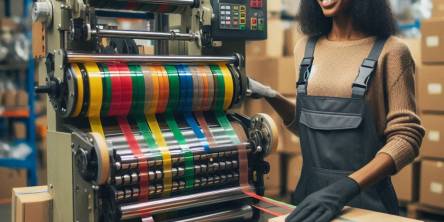Employee GPS Tracking in 2018: New Surprises and Failures
Soon, almost all firms in the developed world will monitor their employees via GPS devices, in one way or another. The omnipresence of smartphones, the rise of wearable devices sporting GPS receivers and the use of mobile apps equipped with various health monitors means that employee GPS tracking technology is ready to become all-pervading in almost all branches of the economy.
With the rise of employee GPS tracking, the question of security has become increasingly more important. Some recent reports have shown that many GPS tracking and sharing platforms employ poor (if any) security measures, this should signal a warning to business owners planning to use employee GPS tracking systems. Fortunately, there are plenty of quality solutions that comply with the high standards of security needed.
Security issues are raised to a new, unexplored level when one discusses the possible introduction of implantable employee trackers. The problem with implantable trackers is now and will be for the foreseeable future that of privacy invasion. This issue alone will prevent this tech from impacting upon the employee GPS tracking market.
And finally, one has to examine the lack of firm limits that exist when it comes to the personal privacy of employees being tracked. Limits must be imposed so that employees are protected. The lack of regulations surrounding the tracking of employees allows unscrupulous companies to collect as much of their employee’s data as they possibly can.
Employee GPS tracking using wearable tech
BP America handed out 25,000 fitness trackers to its employees back in 2013 in an effort to increase their wellness but that also triggered a new trend of employee fitness tracking. A few years ago, the number of fitness trackers used in various workplace wellness programs was just a few hundred thousand; in 2018, that number should reach 13 million. With the increased development of wearable technologies, it’s only a matter of time before smartwatches become affordable enough to replace fitness trackers, giving employers the means to fuse wellness programs and employee GPS tracking.
Employee GPS tracking using wearables has many advantages . The greatest advantage appearing to be the seamless way in which tracking and monitoring work with this type of device. All features work automatically; there’s no setup involved, you simply install the needed app and start it in case when tracking is done via smartwatch. And in case a fitness tracker is used workers have to sync data with their smartphones. Each piece of data can be accessed online because fitness trackers can be synced with smartphones and furthermore, smartwatches offer even simpler integration along with support for mobile apps. This allows them to be equipped with the native apps of the employee GPS tracking platforms that support it. Some smartwatch models (never ones that come with standalone LTE coverage) even offer standalone online synchronization options and advanced fitness and health sensors. For instance, the new generation of Apple Watch comes with ECG feature, allowing for unmatched accuracy when it comes to heart monitoring.
2018 is the year in which wearable devices are quickly becoming the main tool for employee GPS tracking. And while other technologies, like smart badges, are also growing in popularity the signs are that the workforce of the future will be tracked via wearables.
Introduction of implantable trackers raises serious privacy concerns
After equipping your employees with smartwatches or fitness trackers with GPS receivers and the ability to sync with smartphones, thus offering a seamless way of accessing tracking data online, the question arises - what will come next? What could be more seamless than a wearable device? Well, devices that can be carried by users 24/7 without the possibility of removal, forgetting or battery life. The answer is simple - implantable chips.
Coming from the murky depths of dystopian Sci-Fi novels and the grim predictions of the future they portray; implantable chips are slowly being mooted as the ultimate way to monitoring employees. Just last year, a company named Three Square Market was on the front pages when its CEO and the majority of its 85 employees agreed to be implanted with RFID chips . These chips were capable of automatizing many everyday work tasks and simple chores like logging in to office computers, automatic door opening and using various equipment at work like printers, copy machines, or vending machines.
Another offering out there although not employing sub-skin implants that once implanted literally become part of your body, is just as worrying. And this is Smart sensors . Smart sensors are installed inside office lighting, computers, or HVAC systems and are capable of collecting all kinds of data. With the help of next generation smart employee badges equipped with not only RFID chips but also NFC sensors, Bluetooth, infrared sensors, microphones and accelerometers, these smart sensors can track every single variable inside an office, down to stress levels detected by analyzing voices of workers and various biometric data such as hours of sleep, calories burned or activity levels.
This also means that employers are able to track their workforce 24/7, 365 days a year. These chips can be tracked all around the office via smart sensors and while they aren’t offering much else, in just a few years we will witness implants equipped with GPS receivers, health monitors, and even internet connectivity. This raises serious privacy concerns because, if your employer can track you non-stop, do you have any privacy left? And, if employers start tracking their workforce without any limits, how long will it take governments to impose similar rules on its citizens?
Some governments plan on running nationwide monitoring networks that follow everyone, so the only thing stopping them from using implantable chips is the fact that technology is not advanced enough, yet. There’s also the scenario in which internet companies start offering implantable chips capable of monitoring your every move, and people might agree to use them because we are living in a society where personal privacy is slowly becoming obsolete.
Lack of security in many popular GPS tracking apps
These concerns aren’t unjustified. Look, the most important thing each and every GPS sharing, tracking, or monitoring platform (including employee GPS tracking solutions) has to include is two-way encryption capable of preventing everyone except end users and those who perform monitoring (employees) from having access to the collected data – that means even companies providing these platforms shouldn’t have access to the data – but a recent research study showed many of the most popular apps either use poor security features, or none at all, which is gravely concerning.
A study called “All your family secrets belong to us – Worrisome security issues in tracker apps” stated that 18 popular GPS sharing and tracking apps all had one thing in common - poor security. Researchers found a staggering number of security vulnerabilities among apps such as KidControll GPS Tracker, My Family GPS Tracker, Family Locator, Couple Tracker App, Phone Tracker Pro and others.
Security vulnerabilities range from allowing attackers easy access to usernames and passwords. To exposing tracking data to the public by offering no encryption at all or simply keeping the unprotected (that means keeping data as plain text) sign in data of every single user on app servers. The issue is not found with any employee GPS tracking platform (at least till now) but even if these platforms use advanced security measures, they are at risk of being hacked. Even biometric security measures aren’t hack-proof so developers of employee GPS tracking platforms simply have to use two-way encryption in order to keep gathered data secured on their servers.
Putting limits on employee GPS tracking platforms regarding user privacy
Tracking a workforce can now be seen as all-encompassing therefore the need to limit tracking and monitoring naturally has a place at the center of this discussion. As we already pointed out, without firm legislation companies will try to monitor everything, non-stop. Wearables are able to track location and health data throughout the day, so we must develop ways to impose limits upon employers. Allow them to monitor and store data gathered only during work hours unless employees explicitly agree for their movement or health data to be monitored during off hours.
Further, this gathered employee health data must not be misused. For instance, employers cannot use this gathered data as a reason to fire employees because said data shows a health problem, thus preventing this employee from using their health insurance plans for treatment. Similar cases have happened already. Or imagine a situation not too far off; a worker goes out and drinks a lot of alcohol each weekend and since they are monitored by their employers 24/7 with implanted chips (capable, for instance, of measuring level of alcohol in bloodstream), they receive notice that their contract will be terminated because the company has a zero-alcohol policy that is in place even during off hours. This employee agreed to be tracked non-stop and therefore agreed to the terms and conditions.
Conclusion
Wearables as the go to tool for employee GPS tracking are definitely on the rise, this rise in use has seen a corresponding rise in warnings. Lack of security being one of the greatest but fortunately, this was limited to GPS tracking apps that aren’t supposed to be used for tracking employees (but can be). Privacy concerns are to the fore, especially those surrounding the lack of legislation regarding limits placed on companies tracking their employees. If we welcome implantable tracking chips without educating the public and without imposing limits upon the type of data they can collect, or when it can be collected, we are hurtling head first into a future where companies and whole countries will be free to spy on its citizens without any limits. This is a conversation that will be and must be ongoing.
Similar Articles
Due to today's competitive environment, small businesses have a hard time distinguishing themselves from their numerous rivals in today's market. One key factor that defines their fate usually is branding
Looking to start a profitable small business? Discover 5 laser engraved products that are in high demand. These ideas are perfect for those seeking a creative and rewarding venture.
It’s crucial to target more skincare users as it can contribute to business expansion along with sales growth. As competition rises in the skincare sector, identifying ways to engage consumers is critical as the market grows stiff. These are some best practices that may be of great help in attracting new skincare clients and keeping them coming back for more.
Does your business send out physical goods frequently? How much do you think about their impact on your business' reputation, customer experience, and overall efficiency?
Simplify your small business's IT setup with our easy-to-understand guide on server racks.
In the world of business, protection against potential fraud or crime is mandatory. Being one of the significant business aspects, unsecured companies are likely to fall into financial pitfalls, leading to tainted reputations and heavy fines
Plastic strapping machines are pivotal in enhancing the efficiency of packaging operations across various industries. These machines automate the process of applying a strap to consolidate, hold, or secure products, ensuring that they are transported safely and remain intact during shipping.
A merchant cash advance (MCA) is a form of business financing that provides fast access to capital for small businesses and startups. MCAs allow companies to receive a lump sum of cash upfront in exchange for a percentage of future credit card and/or debit card sales over a fixed period.
Woodworking businesses specialize in crafting items from wood, ranging from furniture and cabinetry to decorative pieces and custom creations. These businesses often combine traditional craftsmanship with modern techniques to produce high-quality, bespoke products tailored to the needs and preferences of their clients









